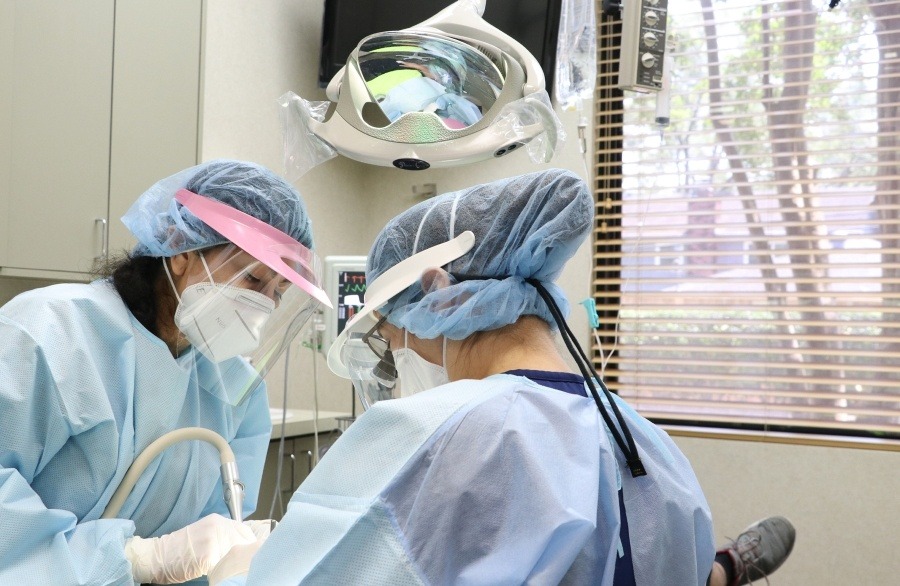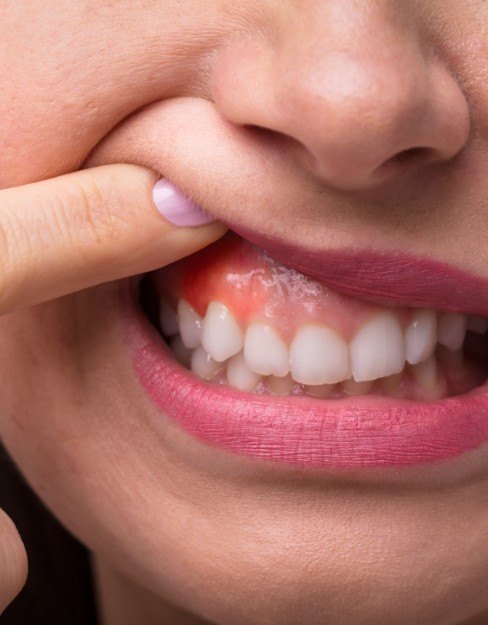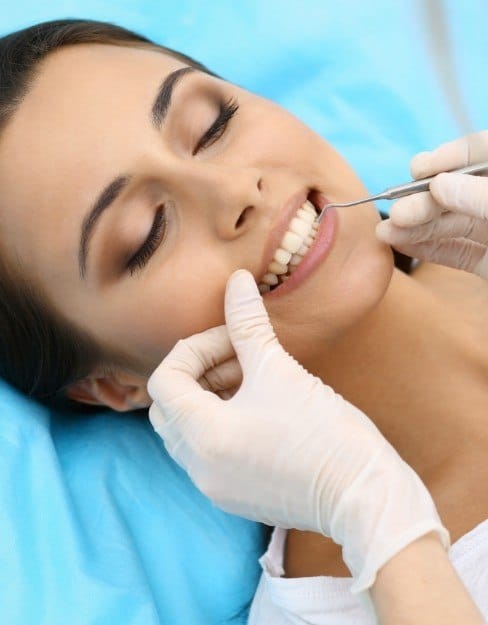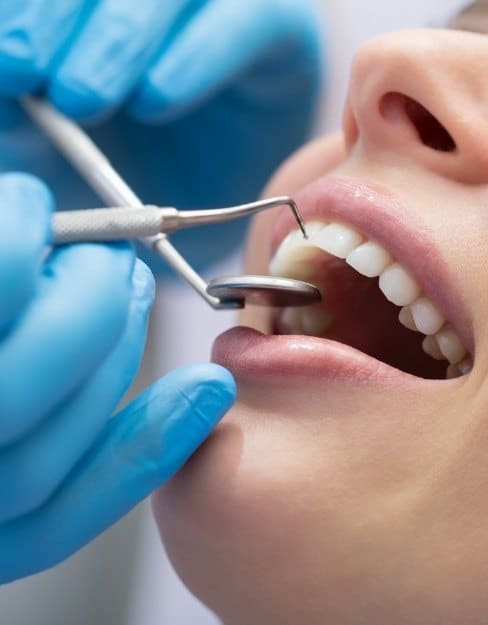Tackling the Harmful Effects of Gum Disease
Gum disease is one of the most common oral health problems in the world. It impacts 50% of adults, according to the Centers for Disease Control and Prevention. There are different severities of this condition, including gingivitis, which can be entirely resolved with early treatment. Periodontitis, a more severe form of gum disease, cannot be cured but early treatment can stop it from progressing.

Our goal at Roman Dental is to preserve your smile by catching the symptoms of gum disease as early as possible. If we aren’t able to do that, we offer advanced gum disease therapy to minimize your symptoms and stop the disease from spreading.
Why Choose Roman Dental for Gum Disease Treatment?

We Accept Dental Insurance

Arestin® Microsphere Antibiotics

Dental Sedation Available

What is Gum Disease?
Gum disease is referred to by many names: gingivitis, periodontitis, pyorrhea, and periodontal disease. Periodontal disease is a bacterial infection of the tooth root and adjacent tissues. Left untreated, periodontal infections dissolve away the bone that supports teeth. Eventually, affected teeth may become hopelessly loose. Gum disease has many levels of severity, gingivitis being the earliest stages, and periodontitis being the more advanced infection. Three out of four American adults are estimated to be affected by this condition, and it is the #1 cause of tooth loss in the United States. Fortunately, like most dental conditions, when recognized and treated early, disease progression can be stopped, and tooth loss prevented.
Benefits of Early Treatment
Early gum treatment prevents the bacteria which cause gum disease from penetrating into the tooth-root surfaces. It is often said that gum disease can only be treated but not cured. This is true in part because bacteria can lodge within the porous root surface, at which time treatment can slow (but not eliminate) the progress of the disease. With early treatment, you’ll have a higher chance of preserving your natural smile and avoiding permanent oral damage as a result of gum disease.


Scaling & Root Planing
Scaling and root planing is a two-step process that can take place over the course of one or two visits to our practice, depending on the severity of your condition. During the first part, we’ll thoroughly remove all plaque and tartar from the surface of your teeth using Airflow therapy, reaching as far down as the pockets of your gums. Then, we’ll smooth out the roots of your teeth by removing any hardened deposits of tartar. This will allow your gums to healthily reattach to your teeth to provide the structure with protection from harmful oral bacteria.
Antibiotic Therapy
Unlike other dental offices that may prescribe you an antibiotic in the form of a pill or mouthwash, we offer Arestin antibiotic therapy. After your scaling and root planing therapy, we’ll place Arestin microspheres within the pockets of your gums that will slowly release antibiotics to fight the infection over the course of 14 days. Because it directly targets the source of your gum infection, it can greatly reduce your symptoms and even reverse the damage in some cases.


Gum Grafting
Dr. Roman also offers gum grafting to help restore the health of damaged and severely infected gums. As periodontal disease progresses, you may experience gum recession, where the gums covering the roots of your teeth pull back, allowing harmful oral bacteria access to the delicate structures of your teeth. During this procedure, Dr. Roman can remove any damaged tissue surrounding your teeth and replace it with soft tissue taken from the palate of your mouth. This will help provide the roots of your teeth with protection to hopefully prevent permanent oral damage like tooth loss.








